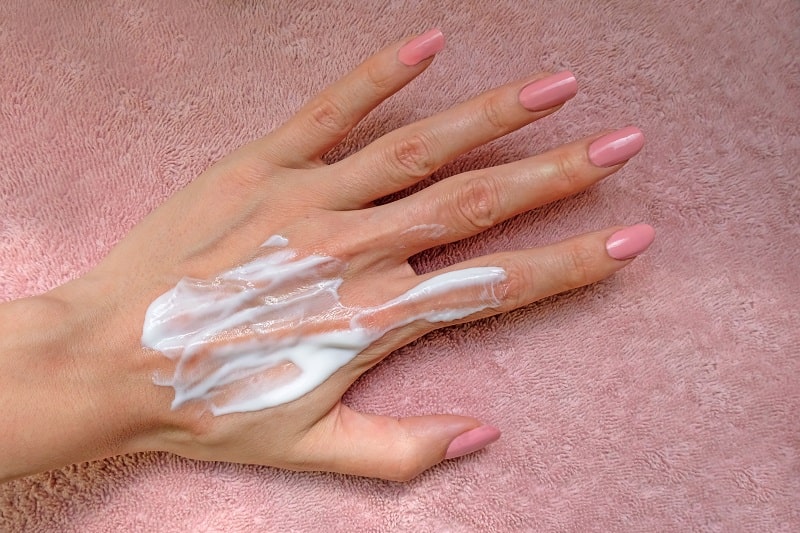Can you use vegetable oil for suntanning? Experts say no! While it may sound compelling to some, and the logic behind it may sound all well and good (after all, cooking oil crisps food nicely), vegetable oil should not be used as a substitute for suntan lotions. In fact, all types of cooking oil should be avoided when it comes down to trying to enhance your tan.
Coconut or olive oil? Steer clear of it. Now if you are not entirely convinced, this article is going to take a dive into why dermatologists globally advise against the use of oil while tanning, as well as address better (dermatologist-approved) alternatives that are available on the market. Without further ado, let us find out all there is to know about oil and safe tanning practices.
Is Vegetable Oil Good For Tanning?
No, vegetable oil is not good for tanning. Despite the hype it has received in recent years as a tanning quick-fix, you should not be applying vegetable oil in hopes of achieving a tan. Admittedly, oil can possibly give you a deeper tan than what you would normally achieve.
The way it works is that the oil (whichever you choose) encourages your skin to let in rays at more angles than usual. The more UV rays, the better—in this case. Doing so then speeds up your skin cell’s melanin production, and then there it is: one nice tan.
It needs to be said that cooking oil does not offer appropriate sun protection that other approved tan-enhancers have. This means that you will generally be sitting out, unprotected from all ultraviolet rays, for an extended time. On top of all of this, oil locks in heat, which in turn can hasten the formation of a sunburn and cause irreversible damage to skin cells.
Oh yeah, it’s as bad as it sounds: Asda, a UK-based supermarket chain, had made an announcement in 2019 renouncing the use of their vegetable oil for tanning purposes. More than anything, the company argues that their vegetable oil is for cooking purposes only, and under no circumstances is it safely recommended for use on skin.
Is It Better To Tan With Coconut Oil Or Olive Oil?
Honestly, neither coconut oil or olive oil are good alternatives to using vegetable oil. And this isn’t because they won’t get you a comparable tan: they will. Oils are fully able to help you get a tan, though at a dangerous cost. With that in mind, not using any of them is the best bet.
As stated above, there is no UVA or even UVB protection in standard cooking oils. That being said, early testing showed promising results for coconut oil when it came to sun protection, though the protection offered was by no means enough to fully guard your skin in any significant way. Although coconut oil is a marvelous moisturizer, I would recommend against using it as a tan-enhancer.
On another hand, olive oil is on the same level as vegetable oil. Though different densities, they both offer no UV protection for your skin. Alas, olive oil is likewise known to be great for moisturizing and nourishing as coconut oil is, though despite these beneficial properties, it should not be used for tanning.
What Oil Is Good For Suntanning?
The best oil for suntanning is one that is made for suntanning. Also, preferably one that has at least a SPF of 30. This is mostly so you can tan with a peace of mind knowing that your skin is well-guarded, though extra steps can be taken if your suntanning oil is lacking in the SPF department.
If you find yourself without proper UV protection in your preferred oil, dermatologists advise applying a 30 SPF sunscreen prior to your suntan oil application. For a good composite list of various tanning oils, check out The 10 Best Tanning Oils of 2022. The list includes ones known for giving deep tans, enhancing current tans, and ones that have SPF implemented into their design.
What Oil Makes You Tan Faster?
Technically people will argue that baby oil will make you tan faster. However, you should never use baby oil to tan. The reasons are the same reasons you shouldn’t use cooking oils for tanning: you have no protection from harmful UV rays, and the damage is amplified.
Honestly, tanning isn’t necessarily viewed as a safe practice by dermatologists. The long-lasting risks to your skin far outweigh the impermanent potential outcome you could possibly obtain from tanning. The positive effects are not worth the negative aspects of tanning.
If you are still on the hunt for a legit, fast-acting suntan oil, you may be interested in Melanoboost, an Australian-based company that is using peptides to influence the body’s melanin production. Boasting minimal UV exposure while maintaining great results, they additionally have some devoted customers claiming the product took effect within 20 minutes of application.
What Tanning Oil Gets You The Darkest?
There is tons of debate in the beauty community about which tanning oil will get you the darkest. Some of these come from bias, while other opinions come from genuine experience. It is important to note that everyone’s body produces melanin differently, and so some tanning oil that may work wonderfully for one person may not have the same effect for another.
On that note, it is important to shop around and to test products. Find shades you like, which offer the most natural depth, and which ones you enjoy the fragrance of. Believe it or not, some tanning oils have a strong smell to them, which could prove to be a serious deal breaker!
If smell is a big factor for you when you are considering suntan oil, Watermelon Tanning Oil is a vegan product with a sweet, watermelon-like scent. The product has nearly 2,000 positive reviews from customers admiring the product for giving a naturally appearing dark tan, being lightweight, and for smelling awesome!
Final Thoughts: Can You Use Vegetable Oil For Suntanning?
Overall, vegetable oils and others such as olive, coconut, and baby oil, can provide you with a tan. However, you will not gain any sun protection benefits from using these oils, and so it should be avoided. Using these oils may actually be more harmful for your skin.
The potential risk for skin cancer development, as well as permanent skin cell damage, actually increases when donning oils similar to the aforementioned because they attract UV. On that note, there are safe alternative options to these infamous oils.
Depending on your preferences, you have access to choices that are fast-acting and ones that can provide a deep tan all while including SPF in the product. Of course, the decision (as always) comes down to you and how you want to tan.
Whether by sunbeds, sun lotion, spray tans, or by suntan oil, the choice comes down to you. Stay aware of risk factors, and always wear sunscreen when appropriate to do so. More information on avoiding skin cancer can be found here.






